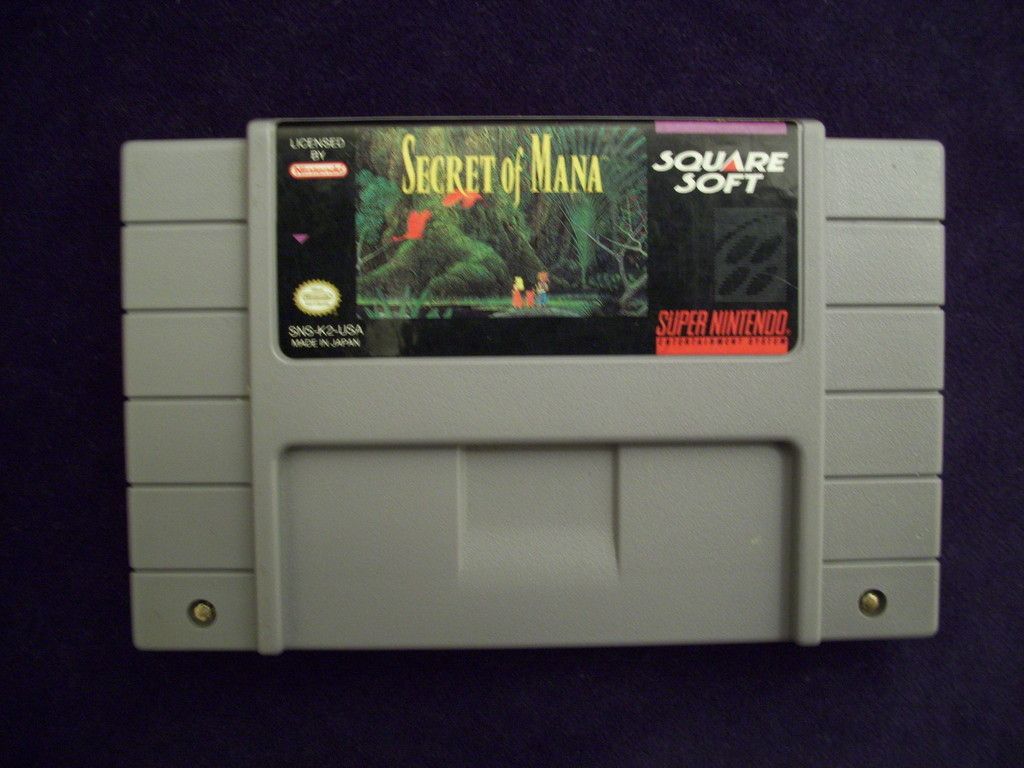While everyone is getting down and dirty with their 2010 backlog, I’ve decided to go back over a decade and play titles from the days of the SNES all in the name of “research.” One of the titles I decided to pick up on the iPad recently was Squaresoft’s (no Enix then) Secret of Mana. A classic and very cliché JRPG that is highly regarded by it’s faithful as one of the best titles the genre has ever seen. Barely hours into my adventure, I quickly realized just how hard some of these older titles were, and I wondered, is the game really that difficult or am I just not as “hardcore” of a gamer as I once was; is anyone as “hardcore” of a gamer these days? As much as you don’t want to hear it, you’re probably much more casual than you want to believe.
You can look at tons of current generation titles that literally hold your hand for hours on end. Even the most popular games (whether linear or not) like Red Dead Redemption, Mass Effect 2, and especially Splinter Cell Conviction all are chocked full with what seems like never ending tutorials that seem to go on and on. Now this isn’t to question the integrity or the quality of those IP’s, its more to show how casual some of these “hardcore” games really are.
Not to sound like a senile old man and say things like “back in my day, I used to walk seven miles to school in the snow…with no shoes” but I have to say that back in my day, which was only two generations ago, these tutorials and hand holding gameplay techniques wouldn’t fly. Back in my day, with games like Secret of Mana, Final Fantasy, or even Shining Force, if you stepped away from the game for too long and forgot the name of the town you were in or what town you needed to be in, well then...you were pretty much f*cked.
Games back then were all about trial and error, memorization, and skill. And when you took the price into consideration, with some cartridges going for as much as 70 bucks on average, for plunking down that much money you had to get something challenging that would last you for a solid play through. Now when you fast forward to 2010 and take a look at Final Fantasy XIII, a game made by the same company as two of the three titles listed above, you can get through the first six hours of the game (not a joke) by simply pressing the ‘X’ button on your DualShock 3 over and over.
Just to quickly quiet the cynics who will read this and say to themselves or comment, “Well I play (insert generic modern military and/or futuristic first person shooter here) for over three hours every day and I have a clan, and we will crush your noob ass,” I need to tell you that you are no more “hardcore” than someone who plays Angry Birds for hours on end. The reason being is that games like your Call of Duty’s, Halos, MAGs, KillZones, and Battlefields are all created around this one common theme and it’s called accessibility. It’s also the reason why anyone can simply pick up those games and play them and the reason why they also just so happen to be the biggest sellers. Games have become so accessible (which is just a fancy façade for the word casual) that certain titles are scared to take chances on even the most insignificant things such as control/button scheme as to not hurt your precious Call of Duty fingers.
So what’s changed since the hey-day of challenging platformers and RPG grind-fests? Well the first thing you can point out is how much we’ve changed over the years, not just going from a gaming sub-culture making the jump to mainstream, but how much we’ve changed as a society. We’ve become a people that want things not now, but more like 10 minutes ago.
Gaming is something we don’t treat any differently with 2010’s highest selling game, Call of Duty: Black Ops, as a prime example. Besides it being so casual (man I love saying that) the other major thing it has going for itself is that it’s a quick fix. You jump in, you shoot someone, someone shoots you, you die, and you jump right back in. Even its more “challenging” game types, the rounds are no longer than three minutes.
Recent titles like Atlus’ Demon's Souls or Team Meat’s Super Meat Boy have managed to echo some of the same qualities found in the old school of gaming. Frustrating gamers across the world, it's titles like these that allow people to experience was gaming was all about before it became the cool thing to do. If you would have asked a 10 year old me back in 1994, I would have probably said something along the lines of “Well if it doesn’t make you want to break your controller its probably not worth playing.” And that’s because back then, when you cleared a certain area, found a rare item, or passed a certain boss, it actually felt like an accomplishment because you did it all on your own (unless of course you called the 900 number in the back of your Nintendo Power magazine, you dirty cheater you).
With developers of current titles doing everything for you and constantly telling you exactly where to go, it no longer feels like you’re playing a game and that sense of adventure is gone. I’m guilty of it too, as I am only reminded of being a “hardcore” gamer over a decade ago whenever I fire up an older title. As I get older and the reach of the industry and the hobby that I love is growing every single day, I’ve come to grips with everything going casual because if it didn’t happen it would still be the sub-culture that it once was. Next time you denounce someone for gaming on a phone, just remember you’re probably no more “hardcore” then they are, and the reason is because “hardcore” gamers don’t exist.



